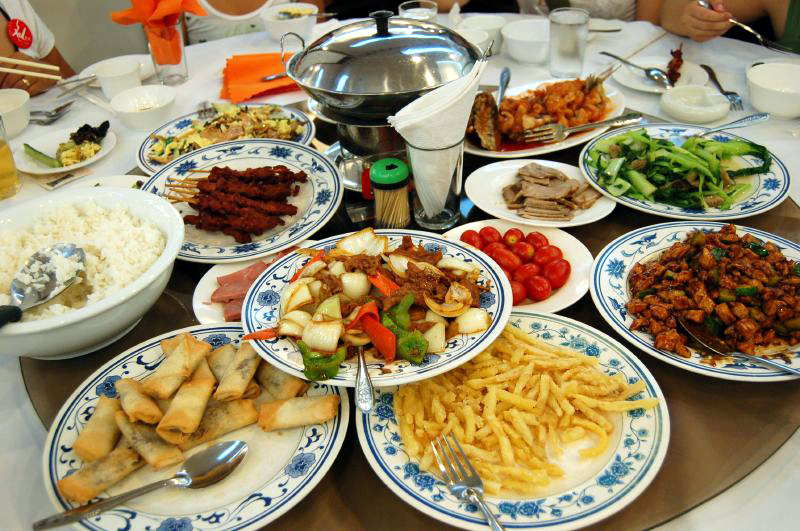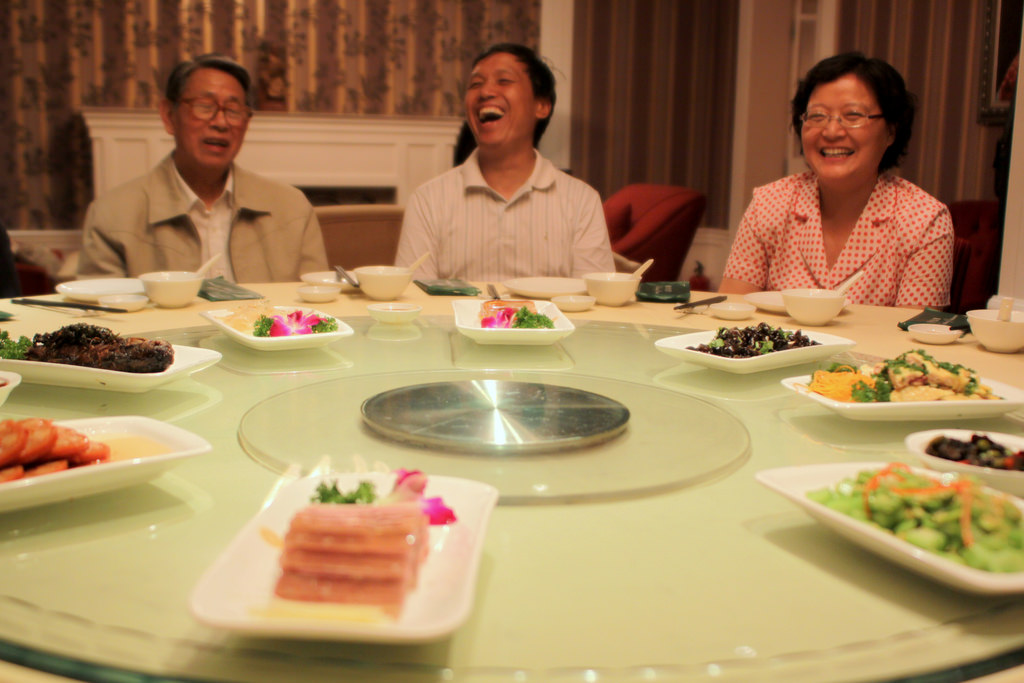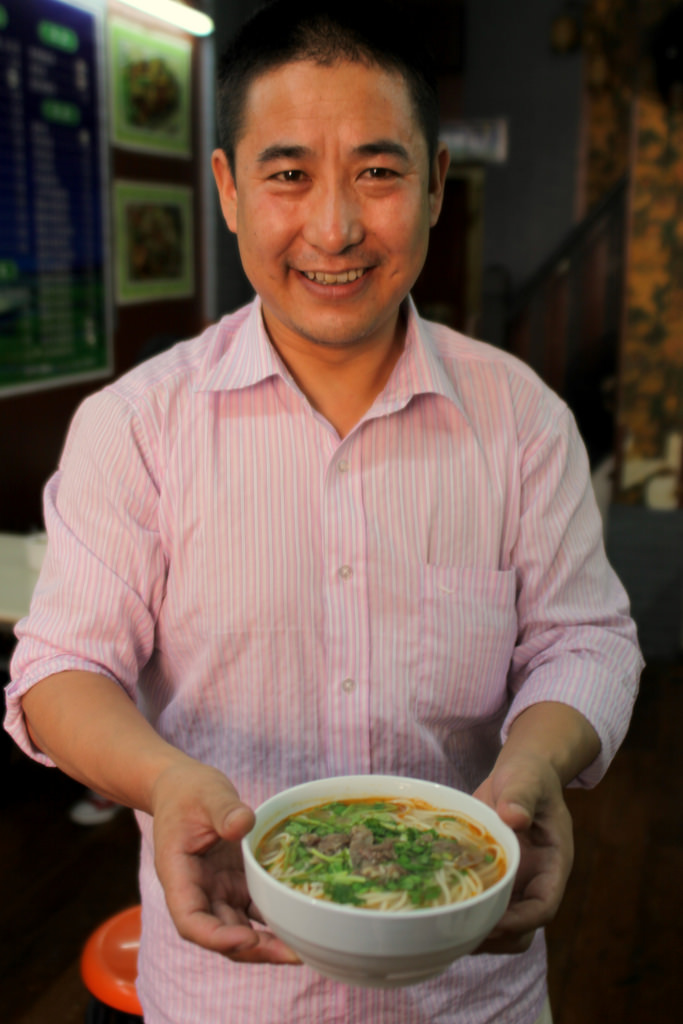Food and Drink: Dining Etiquette
Table Etiquette
Seating is assigned by hierarchy, with the guest of honor seated either facing eastward or toward the door; the host sits in the least prestigious position, usually closest to the kitchen and across from the guest of honor. A place setting typically includes a plate, an empty rice bowl, chopsticks, and a flat-bottomed spoon. Chopsticks are never used to move dishes, stab food, dig around in dishes, or point at other diners. Most dishes are served communally, and large tables are often round with turntables in the center to facilitate passing dishes. Items are usually served together, but a specialty dish will be served alone. In this case, the person closest to the dish passes it to the left and waits for it to return before serving him- or herself. Diners only take what they can eat, and wait to begin until the guest of honor starts to eat. Fish is served whole. The most prized section of meat is the upper belly, which is avoided at first out of humility. When the top layer of a fish is eaten, the bones of the fish are removed to access the bottom meat; a fish is never flipped over, as custom holds that this causes a boat to capsize. Although there are no rules about finishing all the food on one’s plate, it is the host’s responsibility to make sure every guest is satisfied. Therefore, it is paramount that guests communicate satisfaction.
Social Dimension of Dining
Diners are typically punctual for dinner parties. If invited to a home, diners remove their shoes and may also present the hosts with a small gift. In general, though, Chinese prefer to have gatherings at restaurants. Meals are a social affair dominated by conversation rather than quick eating. Diners are expected to be attentive to the needs of their fellow diners, filling others’ glasses (but not their own), and waiting to be served by someone else. They also avoid behavior that could seem greedy, such as taking too much food or the last of something on a platter. After the meal, it is common to sit, talk, and play games for at least 30 minutes. Paying the bill is an important ritual of saving face in China. Unless guests are too young or are the spouse of a guest, they are expected to make some effort to settle the bill. It is a delicate dance of manners: insisting too strongly suggests the host cannot afford the bill, and failing to offer payment suggests the host is somehow indebted to the guests. Because splitting checks is impolite in China, someone will eventually be deemed the most appropriate person to pay, upon which the other diners will thank that person profusely.
Article written for World Trade Press by Christine Kiilerich.
Copyright © 1993—2025 World Trade Press. All rights reserved.

 China
China 

